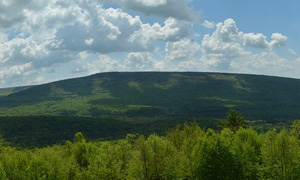Raids have been proposed on funds that fund environmental, conservation and recreational programs. Please take time to contact your Pennsylvania state house member and let them know that you oppose these raids. What follows is our letter to House Members urging them to oppose these short-sighted transfers of funds.
Our letter:
Last week we reached out to you expressing our concern regarding the potential raid of key funds that preserve the quality of life of Pennsylvanians. Sadly, our concerns were confirmed on Tuesday when the Taxpayers Caucus announced their proposed budget strategy that raids funds that protect the environment, invest in our communities, and preserve the quality of life for which we are known.
On behalf of the 41 chapters (we added a new one last week!) and the 35,000 subscribers to the Pennsylvania Parks and Forests Foundation we urge you to oppose raids to the Keystone Recreation, Park and Conservation Fund, the Environmental Stewardship Fund (Growing Greener), and farmland preservation.
While we appreciate the need and the urgency to finalize the budget, balancing the budget on the backs of funds earmarked for particular projects is both short-sighted and misguided. Not only are these funds allocated and supported through legislation, raiding the funds runs in opposition to how these funds were created and is contrary to the desires of the people of Pennsylvania, who repeatedly support investment in open space protection and recreation development and maintenance.
These funds are not surplus or extraneous, as implied by the caucus. They are not growing large or used to curry favor. The funds address a need, and in fact, they are insufficient to fully address the needs in communities, libraries, historic preservation, and our parks and forests, as demonstrated by the number of grant applications NOT funded and the growing list of maintenance and capital projects deferred for years.
Tuesday’s press event by the Taxpayers Caucus classified these as “shadow funds.” This is misleading and inaccurate, as the funds:
- Are listed as part of the budget in the special funds section, and so are readily monitored by the public and the general assembly.
- Are readily found on the treasury website, transparent to anyone.
- Were audited recently to ensure that they are being used by the organizations who received them for the purposes for which they were granted and that the process of awarding grants is sound.
- Are vetted through a competitive grant process and require a local match, which not only supports transparency, but also leverages local and private dollars and investment.
- Require identification of state elected officials on the application, who often provide letters of support for community projects (as well as attend ribbon cuttings to celebrate the completion of the projects).
The consequences of stripping these dedicated funds as proposed include but aren’t limited to the following:
- On the state park and forest infrastructure side of the equation, our parks and forests risk losing $16.7 million in construction projects that are in process now (how will contractors be paid?), $36 million in projects in the design/bid phase, and an additional $42.2 million in the planning phase. These projects are not only necessary for recreational improvements, some of them are for safety measures!
- Park and conservation projects that have gone through this year’s competitive application review cycle—and which in many cases have taken years to bring to fruition—will not receive needed funding, removing these local improvements from communities across the state.
- Current grant awardees may not be reimbursed for work already completed, creating financial hardships for communities, non-profits, and vendors across the state.
- The grants in question bind both the commonwealth and the grant recipient via a legal contract; thus, failure to reimburse will be a breach of that contract. Many of the contracts have three-year terms for completion, so money must be held in the fund until the project is completed and the agency/organization requests reimbursement.
- Counties may be forced to renege on preservation contracts with farmers, leaving farmers with costs they incurred to prepare their farms for protection.
- Pennsylvania vendors and service providers may be impacted when grantors are unable to pay for delivered services or to complete a project. These funds support jobs across the state, from the playground manufacturer to the excavator, from the landscape architect to the environmental consultant.
Investments in parks, forests, open space, and community recreation have been shown time and time again to create jobs, result in thriving communities, improve human health, and serve as economic engines for the commonwealth. In fact, a recent study by the Outdoor Recreation Industry found that non-consumptive outdoor recreation in Pennsylvania generated $21.5 billion in consumer spending and supported more than 219,000 Pennsylvania jobs. This equates to $1.6 billion in state and local tax revenue! https://outdoorindustry.org/images/ore_reports/PA-pennsylvania-outdoorrecreationeconomy-oia.pdf
Can we count on you to be a leader and oppose cuts to the funds that protect our environment (as there were many other environmental funds targeted), create a quality of life that attracts businesses, and support human health?
Thank you for your consideration.
Yours in the Outdoors,
Marci Mowery
President




